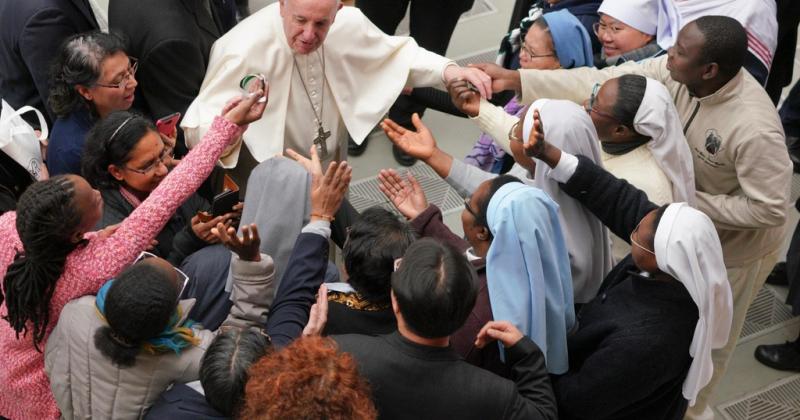A while ago, I titled one of my pastoral letters “If possible, on your part, live at peace with everyone”, those wise words taken from a verse in Romans 12:18 in the New Testament. In it, I focused on the life of Saint Francis of Assisi and his prayer “Make me a channel of your peace”. Now, four years later, the Apostolic Vicariate of Southern Arabia is returning to that same prayer, as we witness the first ever visit by a Pope to the Arabian Peninsula.
Pope Francis’s historic journey to the region exemplifies the UAE’s Year of Tolerance and has provided an opportunity to reflect on what such ideas really mean. I believe deeply that true peace cannot be achieved with weapons or complex negotiations.
The peace God wants to give us requires a pure heart that trusts, has faith and seeks justice for all. Looking into our own hearts and into the circumstances endured by many people all over the world, we can easily discern the things that stand in the way of harmony: injustice, ambition, jealousy, greed, pride and the thirst for power.
Another vital component of peace is respect. Respect for the dignity of others, their cultures and religious beliefs, is of paramount importance. It is a basic value that can be taught to our children at home, in school and in our wider communities. It will also help them to grow up into young people who are able to deal with any conflicts they encounter in a constructive and non-violent way.
Schools offer an ideal habitat for peace. They should not limit themselves solely to the pursuit of academic excellence. Education also has an important role to play in helping children to develop the moral perspectives and social skills necessary to live in an increasingly diverse and globalised world. Acceptance, love and respect form the foundation of a truly tolerant and inclusive society.
But we are not just talking about young minds. Adults should also embrace these principles and try to practice them as part of their daily lives. Perhaps we could all draw a little inspiration from the life of St Francis of Assisi, from whom the current Pope takes his name.
Born to a rich family in 12th century Italy, St Francis renounced material wealth to live a life of humility and service to others. He was free of fear and hatred and full of simplicity and love. The freedom that he experienced while tending to the sick and needy enabled him to become the “universal brother” of every human being and of all creatures.
The result of this fundamental change in St Francis’s life was a complete new relationship with everyone. He was profoundly a man of peace, who, in the midst of the Crusades, met Sultan Malik Al Khamil in Egypt and the fighting parties of civil wars in different Italian cities to seek an end to the violence. He was always a man in pursuit of harmony – the result of his profound relationship with God.
Pope Francis is now following in the footsteps of his saintly predecessor, crossing borders and building friendships with religious leaders, heads of states and humanitarian organisations around the world.
Recent pontiffs have made concerted efforts to promote peace and tolerance – not just between different religious groups, but also between nations. In 1986, Saint Pope John Paul II planned a meeting of religions leaders to take part in a prayer for peace. At first, he considered inviting them to Rome. But, faced with hesitation from some quarters, he reconsidered the location. When he finally proposed Assisi, everyone agreed unanimously. Everyone felt at home in the town where St Francis once lived. The poor man of Assisi is clearly still a powerful peacemaker.
My own hope is for all my fellow Christians to live happily side by side with people of different faiths, and for all other religions to co-exist in peace. Pope Francis’s visit is a perfect example and shows that we are, each and every one of us, God’s children.
